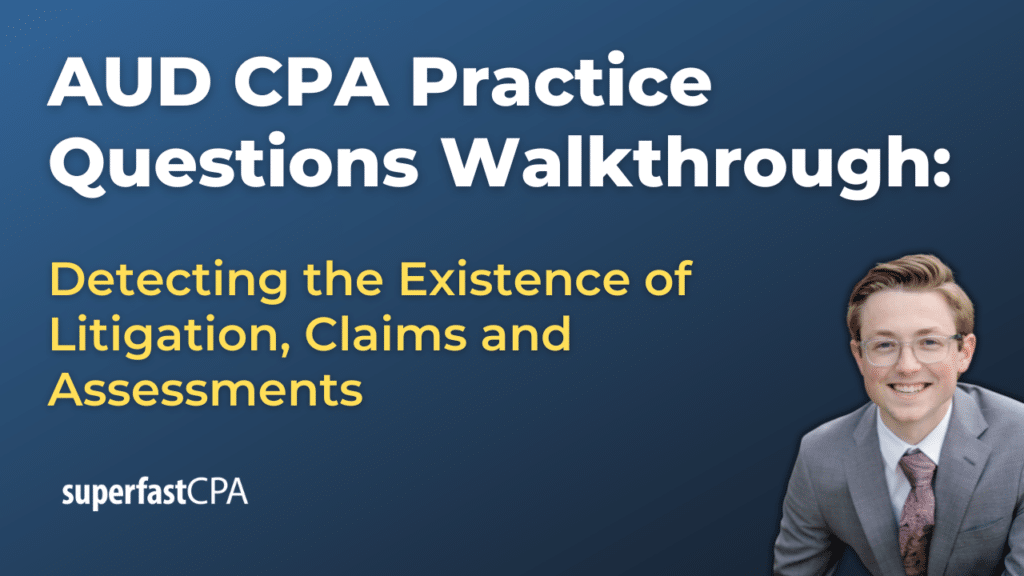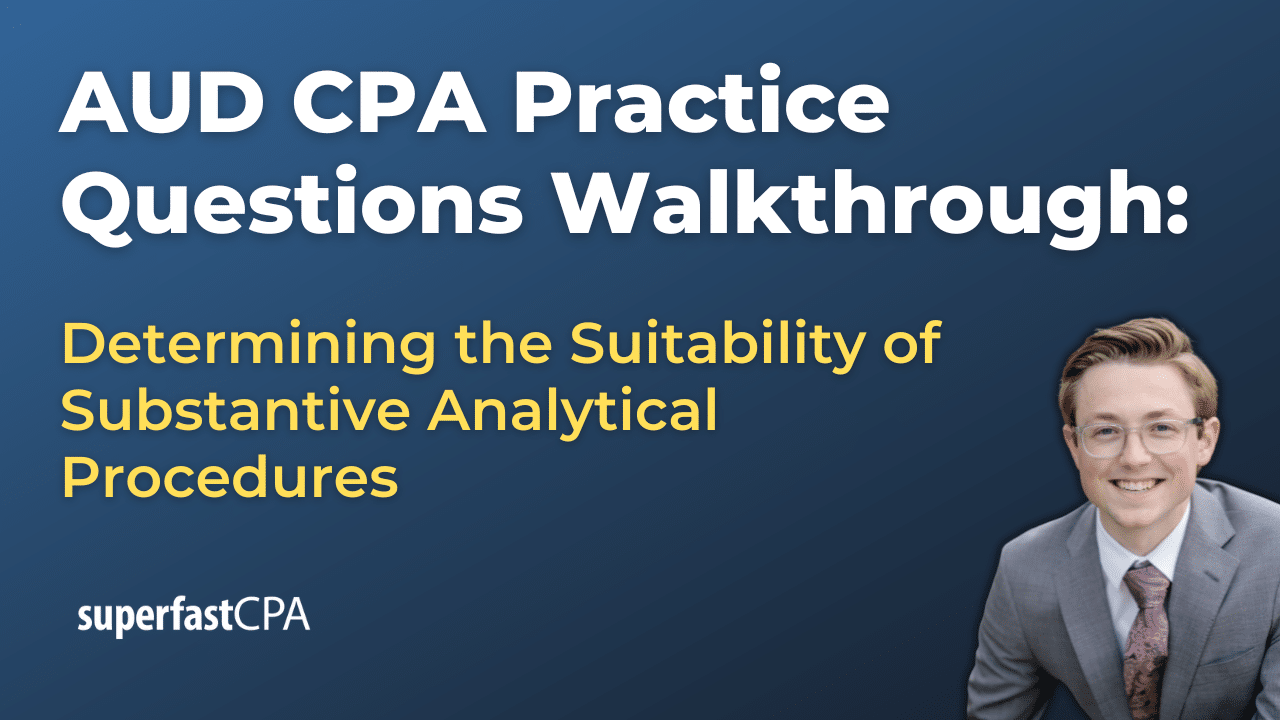In this video, we walk through 5 AUD practice questions teaching about detecting the existence of litigation, claims and assessments. These questions are from AUD content area 3 on the AICPA CPA exam blueprints: Performing Further Procedures and Obtaining Evidence
The best way to use this video is to pause each time we get to a new question in the video, and then make your own attempt at the question before watching us go through it.
Also be sure to watch one of our free webinars on the 6 “key ingredients” to an extremely effective & efficient CPA study process here…
Detecting the Existence of Litigation, Claims and Assessments
The AICPA AUD Blueprint requires candidates to understand how to perform audit procedures to detect the existence of litigation, claims, and assessments. These procedures include inquiring of management and others, reviewing minutes of meetings, and sending external confirmations. Legal matters may require disclosure or accrual and can materially affect the financial statements. Auditors are expected to apply professional judgment and skepticism when evaluating whether such matters exist and are properly reported.
Legal Letters Must Be Requested by Management
Auditors do not send letters directly to legal counsel. Instead, the auditor requests that management send a letter of inquiry to the client’s external legal counsel. The letter should ask counsel to describe any known legal matters, assess the likelihood of unfavorable outcomes, and estimate potential losses or ranges. This procedure provides direct audit evidence regarding potential legal contingencies.
For example, if the auditor becomes aware of a pending dispute over intellectual property, they would instruct management to send an attorney letter to legal counsel to obtain documentation about the case status and potential financial exposure.
Refusal to Send Legal Letter Creates Scope Limitation
If management refuses to send the legal letter, the auditor cannot obtain sufficient appropriate audit evidence. This creates a limitation on the scope of the audit. As a result, the auditor may need to modify the audit opinion. Depending on the materiality and pervasiveness of the limitation, a qualified opinion, disclaimer of opinion, or even withdrawal from the engagement may be required.
A refusal may also call into question management’s integrity or willingness to cooperate, which is a significant audit consideration.
Understand Management’s Legal Controls
Auditors are responsible for understanding the client’s internal controls related to identifying and evaluating legal matters. The auditor should inquire about:
- Who is responsible for identifying legal matters
- How legal risks are communicated to accounting and finance personnel
- How outside counsel is involved in the assessment process
This understanding helps the auditor evaluate whether management has an adequate process in place to identify and evaluate potential contingencies.
Management Is Responsible for Assessment
Management is responsible for determining whether a legal matter should be accrued, disclosed, or neither. The auditor’s responsibility is to evaluate the reasonableness of management’s conclusions.
The assessment should include:
- The likelihood of an unfavorable outcome (probable, reasonably possible, or remote)
- The estimated amount of loss or range of loss
The auditor evaluates this assessment in light of available evidence, including information from legal counsel.
Use Multiple Procedures to Detect Legal Matters
To identify litigation, claims, and assessments, auditors perform several procedures in addition to the legal letter. These include:
- Inquiring of management and internal legal counsel
- Reviewing board of directors and committee meeting minutes
- Examining correspondence with taxing authorities or regulatory agencies
- Inspecting legal expense accounts and related documentation
These procedures help the auditor detect matters that may not have been disclosed or recognized by management.
Conclusion
Auditors must design and perform procedures to identify legal matters that could materially affect the financial statements. This includes requesting legal letters through management, evaluating the design of internal controls, reviewing documents, and inquiring of relevant personnel. If legal matters are identified, the auditor must assess whether management has properly evaluated the likelihood and amount of any potential losses. If sufficient appropriate evidence cannot be obtained—particularly due to management’s refusal to cooperate—scope limitations may require a modified audit opinion or withdrawal from the engagement. These audit steps are fundamental to ensuring accurate and complete financial reporting.














